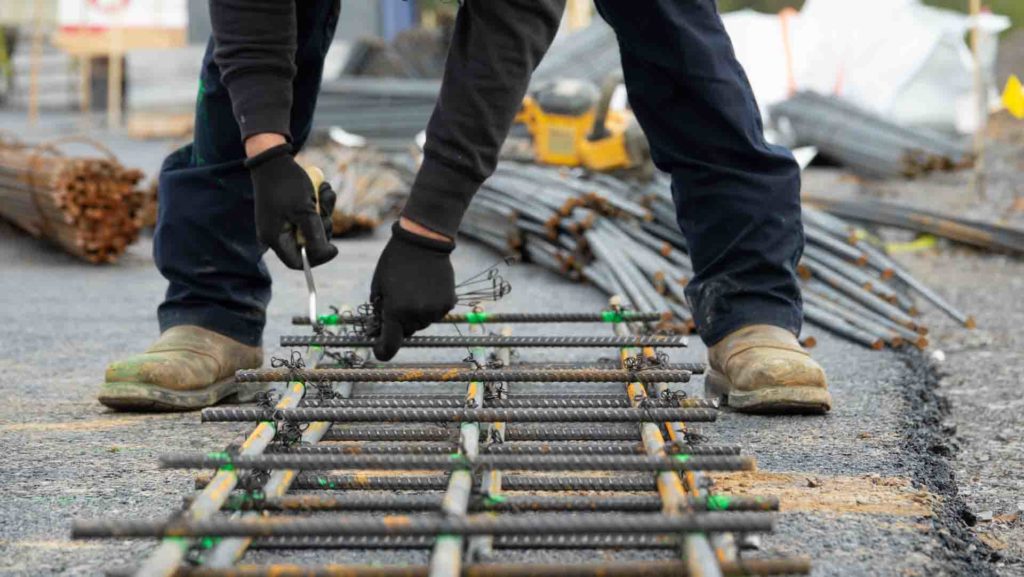Commercial -vs- Residential Concrete
While both commercial and residential projects rely on the fundamental strength and versatility of concrete, the scale, demands, and specific requirements often differ significantly. At Sensible Concrete Works, we tailor our approach to meet the unique needs of each sector, ensuring optimal results every time. Here’s a breakdown of the key distinctions:
Scale and Scope:
- Residential Concrete: Typically involves smaller projects such as driveways, patios, sidewalks, foundations for single-family homes, garage floors, and decorative concrete work. The scope is usually limited to individual properties.
- Commercial Concrete: Encompasses much larger and more complex projects like foundations for multi-story buildings, parking lots, warehouse floors, bridges, roadways, and other infrastructure. These projects often involve extensive planning, larger volumes of concrete, and stricter adherence to building codes.
Load Requirements and Durability:
- Residential Concrete: While durability is still important, residential concrete typically doesn’t need to withstand the constant heavy loads and high traffic associated with commercial properties. Standard concrete mixes and thicknesses (around 4-5 inches for driveways) are usually sufficient.
- Commercial Concrete: Demands higher strength and durability to support heavy vehicles, machinery, and constant foot traffic. This often necessitates specialized high-strength concrete mixes, thicker slabs (6-7 inches or more), and robust reinforcement with steel rebar or post-tensioning cables. Commercial concrete also frequently requires specialized coatings for added protection against wear, chemicals, and heavy use.
Mix Design and Specifications:
- Residential Concrete: Mix designs are generally less complex, focusing on achieving adequate strength for typical household use. Homeowners may also prioritize aesthetics, leading to the use of colored or stamped concrete.
- Commercial Concrete: Requires precise mix designs engineered to meet specific load-bearing requirements, durability standards, and project specifications outlined by engineers and architects. Factors like compressive strength (PSI), water-cement ratio, and aggregate type are carefully controlled.
Reinforcement:
- Residential Concrete: Reinforcement is often simpler, utilizing wire mesh or a basic arrangement of rebar to minimize cracking and enhance overall strength for lighter loads.
- Commercial Concrete: Typically involves more extensive and complex reinforcement strategies, including thicker and more closely spaced rebar, steel fibers, or post-tensioning to handle significant structural stresses and loads.
Finishing and Aesthetics:
- Residential Concrete: Offers a wider range of decorative options, including various colors, stamps, textures, and finishes to enhance curb appeal and personalize outdoor living spaces.
- Commercial Concrete: While functionality and durability are primary concerns, aesthetics are still considered, especially for client-facing areas. Finishes often focus on smooth, durable surfaces that are easy to clean and maintain, but can also incorporate color or simple patterns.
Building Codes and Regulations:
- Residential Concrete: Must adhere to local residential building codes, which are generally less stringent than those for commercial construction.
- Commercial Concrete: Is subject to stricter and more complex commercial building codes, safety regulations, and accessibility standards (like ADA compliance). Inspections are often more rigorous to ensure compliance with engineering plans.
Equipment and Labor:
- Residential Concrete: Projects can often be completed with smaller equipment and fewer crew members.
- Commercial Concrete: Typically requires specialized, heavy-duty equipment for large-scale mixing, pouring, and finishing, along with larger and more skilled construction teams.
In Conclusion:
Whether it’s the foundation of your home or the floor of a bustling warehouse, concrete is a vital material. However, the approach and requirements for residential and commercial concrete projects differ significantly. At Sensible Concrete Works, our expertise spans both sectors. We understand the specific demands of each, ensuring that every project – big or small – is executed with precision, using the right materials and techniques to deliver lasting quality and value.




